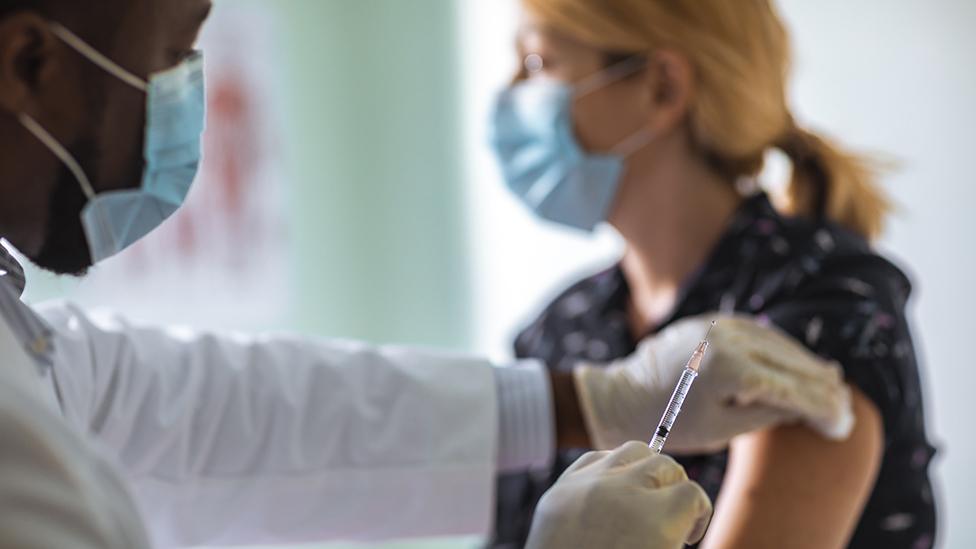Covid vaccine: Wales to get 22,000 Oxford-AstraZeneca jabs next week
- Published
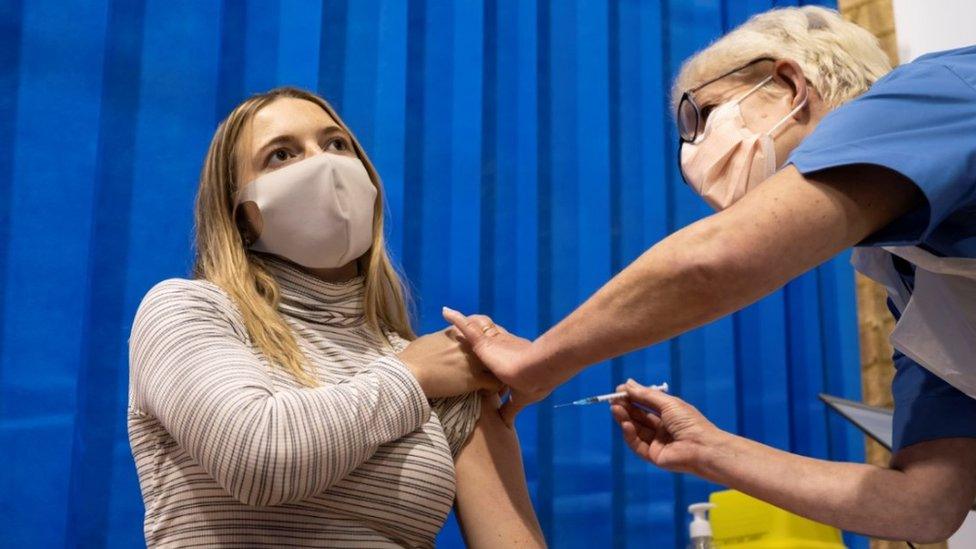
A rollout of the first approved vaccine - the Pfizer Covid-19 jab - is already under way
Wales will get 22,000 doses next week of the second approved Covid vaccine, the Welsh Government has said.
Dr Gillian Richardson, the doctor leading the rollout described getting the Oxford-AstraZeneca vaccine to people across Wales as a "huge task".
She originally said there would be 40,000 doses but the Welsh Government later said it expected to reach that figure by the second week of January.
Meanwhile Public Health Wales said 35,335 people had had the Pfizer jab.
When asked how long the rollout of the latest vaccine would take, Dr Richardson told BBC Radio Wales Breakfast: "We can only give it at the rate at which it arrives, so some of that is not predictable with some of the international players in the vaccine manufacturing world but of course with Oxford we have a lot more control.
"So, by the time the Oxford-AstraZeneca is manufactured using a good steady flow, we'll be able to give you some of those predictions, but just now what we can say is we are doing those that are most vulnerable first, and we will get to everybody in their turn - please bear with us."
She also said it was "excellent news" the two doses could be administered up to 12 weeks apart, meaning more people could get their first jab sooner.
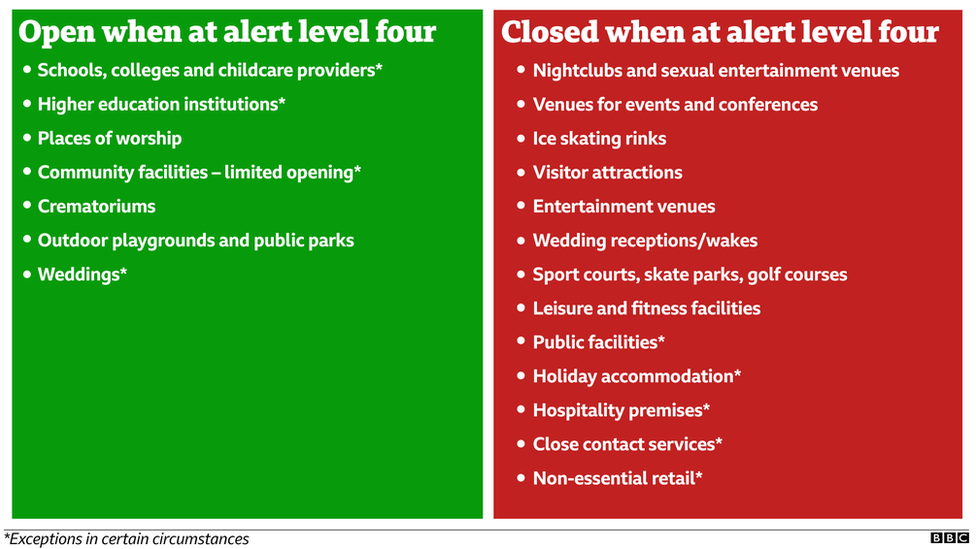
She urged people to follow Wales' coronavirus restrictions as they celebrate new year: "Please for everybody - take extra care.
"That 'hands, face, space', external message is really important, especially tonight, celebrate safely and enjoy yourself safely.
"It's going to be a while before we see vaccine turn the corner on those hospitalisations."
Dr Helen Alefounder, a GP in Colwyn Bay, Conwy county, said she had not been told what date she would be administering the jab from, but planning was in full swing.
Residents in Wales vaccinated by heath board, to 27 December
5,487Aneurin Bevan
4,604Betsi Cadwaladr
5,706Cardiff & Vale
4,789Cwm Taf Morgannwg
5,276 + 3,250Hywel Dda and Powys
5,285Swansea Bay

She said: "It's not just as simple as somebody turning up and having a vaccination, it's everything else that has to be considered with it.
"Logistically it's a huge, huge ask.
"However, we do it every year for flu, so we really have a good background knowledge of everything that we need to do and everything we need to provide.
"It's just simple things like making sure that there's places for people to park and making sure that you can maintain social distancing and making sure that you can allow people time to sit afterwards after their vaccine in case of reactions."
Situation 'extremely serious'
Health boards across Wales are warning that despite the hope offered by the Covid vaccines, hospitals are under relentless pressure in this latest wave of infections.
On Thursday, Cardiff and Vale University Health Board announced it would cease all non-urgent surgery and outpatient appointments in January.
It follows similar decisions to halt non-urgent treatment at the Swansea Bay and Aneurin Bevan health boards earlier in December.
"This is to redeploy staff in support of urgent and emergency care, including critical care," said Steve Curry, the chief operating officer of Cardiff and Vale.
The board said it had also opened a new "surge facility" at the University Hospital of Wales in Cardiff.
"The additional Lakeside Wing bed capacity will be used to support demand in the coming weeks," added Mr Curry.
The medical director at neighbouring Cwm Taf Morgannwg University Health Board said all its sites "remain under significant pressure with unprecedented demand".
"This is extremely challenging for out staff," said Nick Lyons.
"We currently have more than 600 suspected, confirmed or recovering Covid-19 patients in our hospitals and ITUs across our sites are over capacity. The situation is extremely serious."
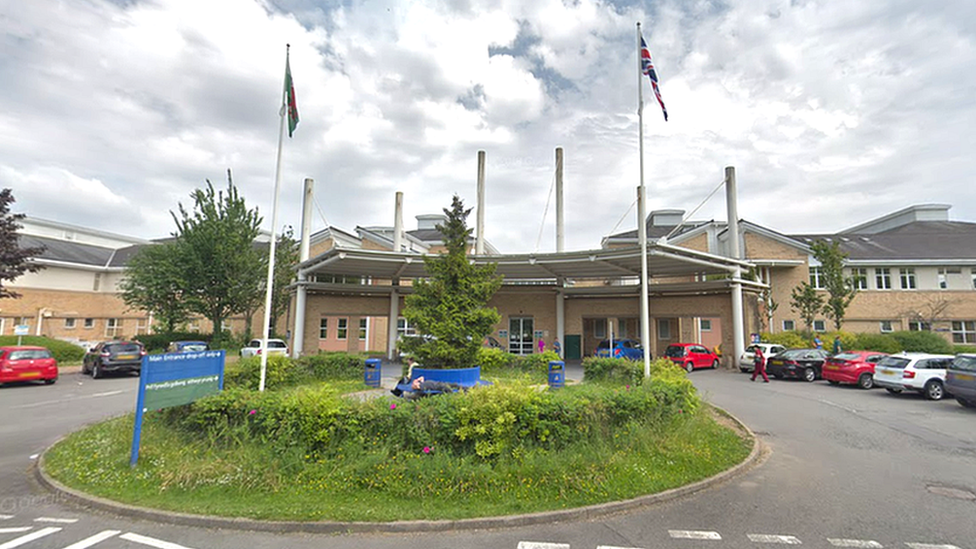
Royal Glamorgan Hospital consultant Dr Dai Samuel says the NHS in Wales is "teetering on the brink"
Dr Dai Samuel, a consultant hepatologist at the Royal Glamorgan Hospital in Llantrisant, Rhondda Cynon Taf, has been working on Covid wards during the pandemic.
He said the rollout of a second vaccine was good news, but urged people to still follow restrictions: "The position with the vaccine is very good but we are in an acute situation.
"It's very difficult across the NHS. We are teetering on the brink. A few days of bad luck can bring us to our knees. It's very challenging.
"I just say [to people], carry on listening to what you have been told for months."
More than 35,000 people have now received the Pfizer-BioNTech vaccine in Wales, including people such as healthcare workers who work in Wales but live over the border in England.
Almost 13,000 of these vaccines were given in the past week.
Plaid Cymru has called on the Welsh Government to ask the UK government to publish evidence to justify increasing the period between the two doses of the Pfizer-BioNTech vaccine from 21 days to 12 weeks.
In a letter to the Health Minister Vaughan Gething, the party's health spokesman Rhun ap Iorwerth said the "sudden switch" represented "a very significant departure" from previous guidelines.
He added there were "very real concerns" that a longer delay between doses "could significantly decrease the effectiveness of the vaccine".
The Welsh Conservatives criticised the speed of the rollout.
Health spokesman Andrew RT Davies said: "Three weeks ago, the first Covid-19 vaccine was given in Wales, and since that time we have sadly seen confusion and hope drop away.
"Many people over 80 in Wales were desperately waiting for their appointment to do their bit and have the vaccine but as we quickly learnt they would have to wait longer," he said.
- Published23 December 2020
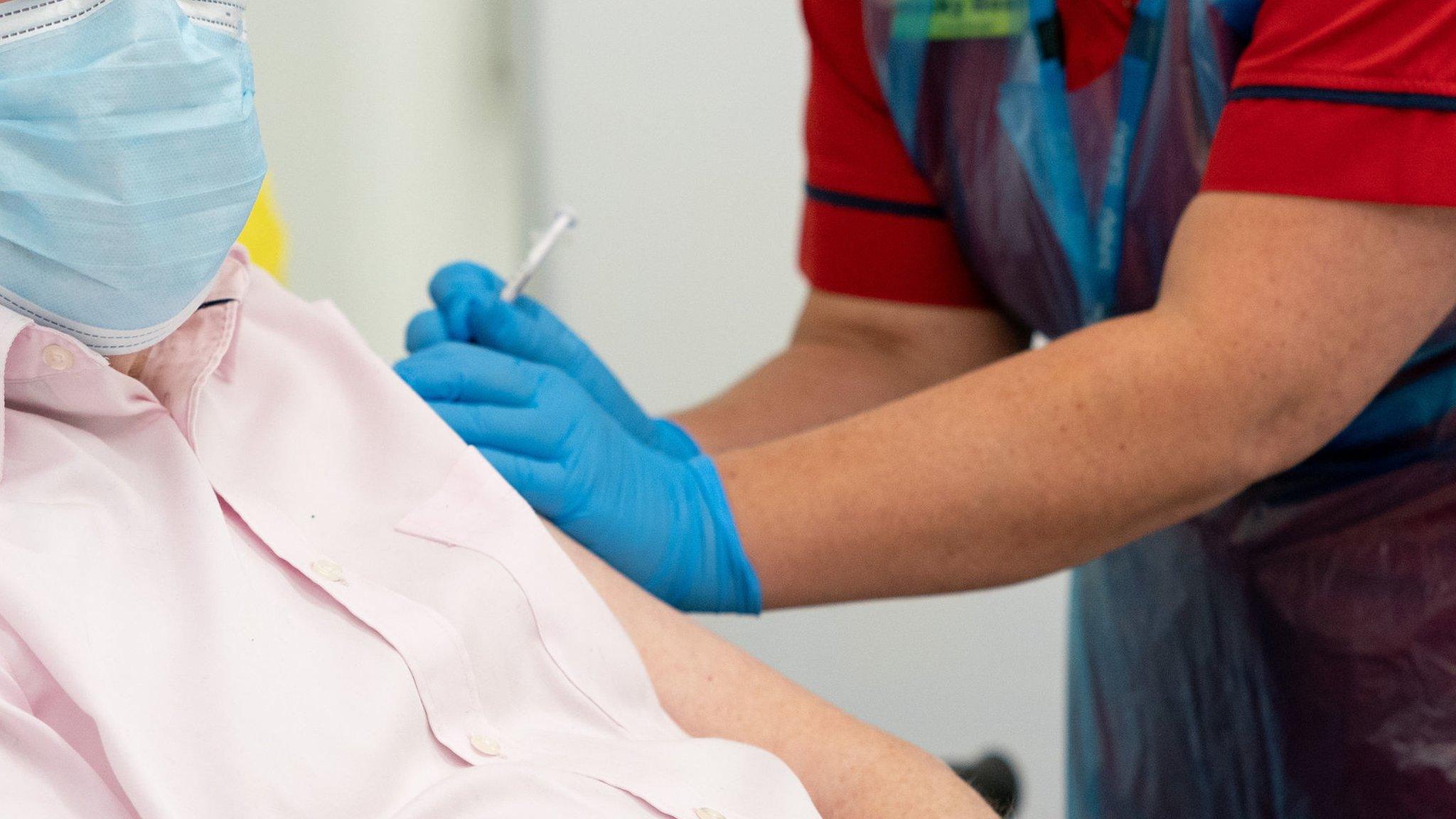
- Published22 December 2020
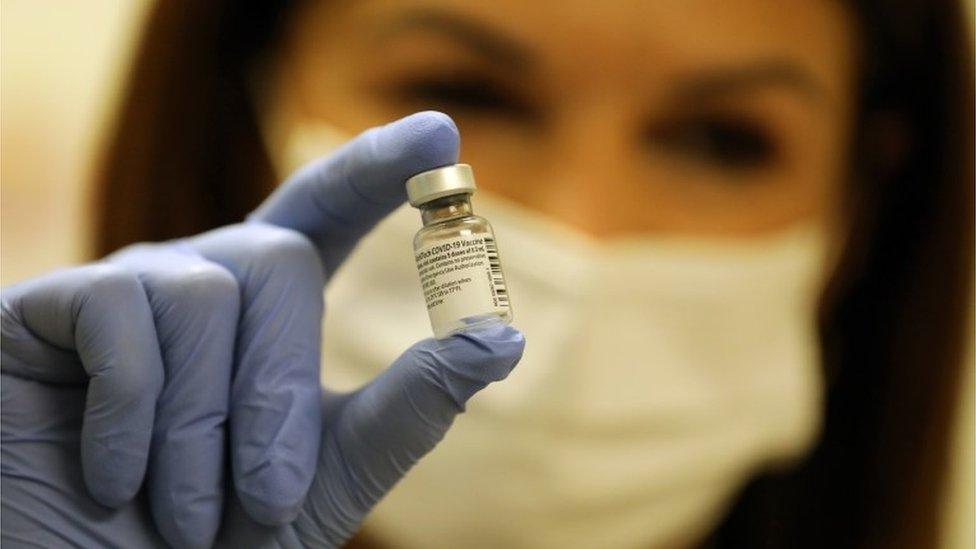
- Published30 December 2020
